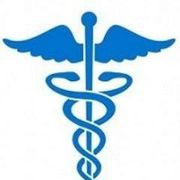Understanding Mood Disorders: 5 Common Signs of Depression

While depression is one of the most common mood disorders, the mental health professionals at Fairbanks Psychiatric & Neurological Clinic APC say it can be hard to pinpoint, especially when a person mistakes their symptoms for general sadness or the blues. But it’s not a problem that should be ignored. Without the proper treatment, depression can lead to a variety of health problems and an increased risk of suicide. That’s why the mental health professionals at Fairbanks Psychiatric & Neurological Clinic encourage everyone to learn the following common signs of depression—and to take action when they are spotted.
5 Warning Signs of Depressive Mood Disorders
1. Change in Sleep Habits
Depression is often accompanied by constant feelings of anxiety and hopelessness. These kinds of thought patterns can keep the brain preoccupied, making it difficult for individuals to sleep. While insomnia is a common marker of depression, some people may go the other way and oversleep. In any case, if you have trouble sticking to your sleep routine or feel tired throughout the day, it’s important to talk to a doctor or psychiatry specialist.
2. Shift in Diet
 Individuals who experience nausea or constipation with depression may lose their appetite. Others may simply not have the energy to cook as they once did. Some people may overeat as a way to soothe their depressive symptoms. If you’ve lost interest in food, are eating unhealthy all the time, or have experienced any major changes in your weight, you may be dealing with depression.
Individuals who experience nausea or constipation with depression may lose their appetite. Others may simply not have the energy to cook as they once did. Some people may overeat as a way to soothe their depressive symptoms. If you’ve lost interest in food, are eating unhealthy all the time, or have experienced any major changes in your weight, you may be dealing with depression.
3. Withdrawal & Isolation
When people have depression, they can quickly lose interest in activities they once enjoyed. While some may be able to force themselves to attend social gatherings, keep up with school, or exercise, others may withdraw from these activities and find ways to isolate themselves from others.
4. Dark Thoughts
As depression takes hold of a person’s daily life, they may stop being invested in their own well-being. This can lead a constant focus on darker topics, particularly death. Some may talk about no longer feeling important. Others may actually become angry or irritable as they are unable to see the optimistic side of life.
5. Lack of Concentration
Leaving the mind preoccupied with despondent thoughts can make it difficult to focus on other things, such as work, conversations, and hobbies. This is particularly true if a person’s depression co-occurs with anxiety.
These red flags may be related to circumstances that are completely separate from depression. However, if you notice a few of them or find these symptoms occur on a regular basis, you should talk to a mental health professional as soon as possible. Offering compassionate, comprehensive care, Fairbanks Psychiatric & Neurological Clinic APC provides reliable diagnoses and treatments to improve many common mood disorders. Learn more about their approach to care online, or call (907) 452-1739 to schedule an appointment.
About the Business
Have a question? Ask the experts!
Send your question

